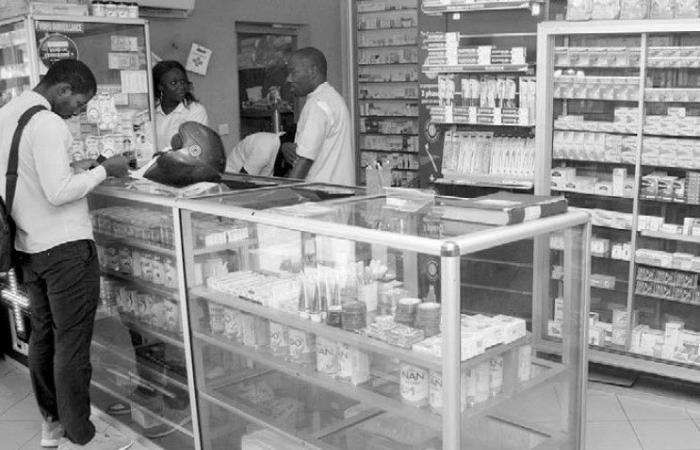Many Senegalese people use and abuse tablets without a medical prescription. Self-medication is therefore very widespread in our country. Senegalese people are divided on this practice, which is considered “necessary” by some.
Monday August 5, 2024. Dakar wakes up under a cloudy sky. In addition to the intermittent horns of vehicles competing for passage, there is a great atmosphere on the sidewalks, bus stops and in places of business. An atmosphere worthy of a morning after a Sunday rest for some, and a full weekend for others.
Pape, a young man encountered in the street, is a fan of self-medication. “I know it's not a highly recommended practice, but sometimes I go straight to the pharmacy to get medicine on the recommendation of friends when I get sick,” he admits. There are many medications that Senegalese people keep at home to relieve pain without the advice of a doctor. “I suffered from headaches regularly. It was known in my neighborhood. It had even become chronic. So, I always had paracetamol in my bag. But, at some point, it no longer gave me relief because even when I took it, I continued to suffer. It was afterwards that I went to see a doctor who diagnosed me with hypertension,” explains Diodio Ndiaye. Now, she advises going to see a health worker when you have persistent illness. “I could have lost my life if I persisted in self-medication,” she maintains. Ndèye Niang is communicating on WhatsApp when we arrive at her home at Parcelles Assainies. Sitting in her modestly decorated store, across the road from the crowded Dior market, the lady is enthusiastic about broaching the subject of self-medication. “I am against it, especially with paracetamol-based tablets. It is better to go and see a doctor and, based on a prescription, pick up the prescribed medications at the pharmacy,” she says.
A risky practice
This resident of Unit 16 of Parcelles Assainies believes that some people, even those around her, instead of going to the hospital, use and abuse tablets without a medical prescription, forgetting the side or undesirable effects of certain molecules. For her daughter Awa Diop, self-medication is a risky practice.
Siré is found in a screen printing workshop, his gaze fixed on the computer, headphones adjusted to his ear. Dressed in a white Jellaba, the young boy reveals that he has repeated stomach aches. To calm his pain, he resorts to self-medication. It’s simpler for him, he believes.
Not far from there, Mamadou Tounkara runs a multi-services store. At the same time, it is active in money transfer. Of course, he recognizes that self-medication is not a good practice, but he admits that he sometimes does it. Diatou Thiam did not beat around the bush. “The doliprane is always in my bag to relieve me in case of pain,” she reveals bluntly, while continuing to quietly eat her breakfast, looking happy. As for the vulcanizer, Pierre, he does not support self-medication. Living in Unit 20 of Parcelles Assainies, he urges the Senegalese to consult a doctor before using any medication.
Mouhamed Tirera is a merchant who manages a multi-item store: from food to kitchen utensils. He says that when he gets the flu, he just buys Febrilex or Litacold to treat himself. It's the complete opposite of this trader, who requires anonymity. “The illness is treated in hospital. Otherwise, hospital establishments would have no reason to exist. My children and I, we treat ourselves in the hospital, frankly,” she maintains.
Go to the doctor
Touba coffee seller, Galaye Gaye, denounces the high cost of living and the difficulty in accessing medical care and medication. “The best thing is to go see a doctor. But often people have no alternative. The consultation is expensive, as are the drugs for correct treatment,” he says. Originally from the village of Keur Amadou Yalla Diop, Galaye Gaye pleads for increased support for the needy who, according to him, constitute the majority of the people. For her part, a seller of luxury fabrics and women's accessories, who refuses to reveal her name, believes that if someone is suffering and is unaware of the causes of this suffering, they should go see a specialist. But it depends on the pain or how the person feels it. According to him, if the pain is benign, habitual or temporary, the person can take tablets while they calm them down. But if it's persistent, she said, the person needs to go to the hospital. According to Mor Cissé, manager of a convenience store, many of those who practice self-medication already know what they are suffering from. “For example, I am allergic, every night before sleeping, I take a Genset tablet. This saves me from sneezing when I wake up. I don’t need to go see a doctor every time for that,” he says.
El hadji Thierno Sakho, a traveling merchant, does not seek help from a doctor, let alone a pharmacist, when he falls ill. He prefers to invoke surahs from the Koran. “It was my Koranic master who taught me that,” he mentions, with a smirk.
Serigne Mansour Sy CISSE






